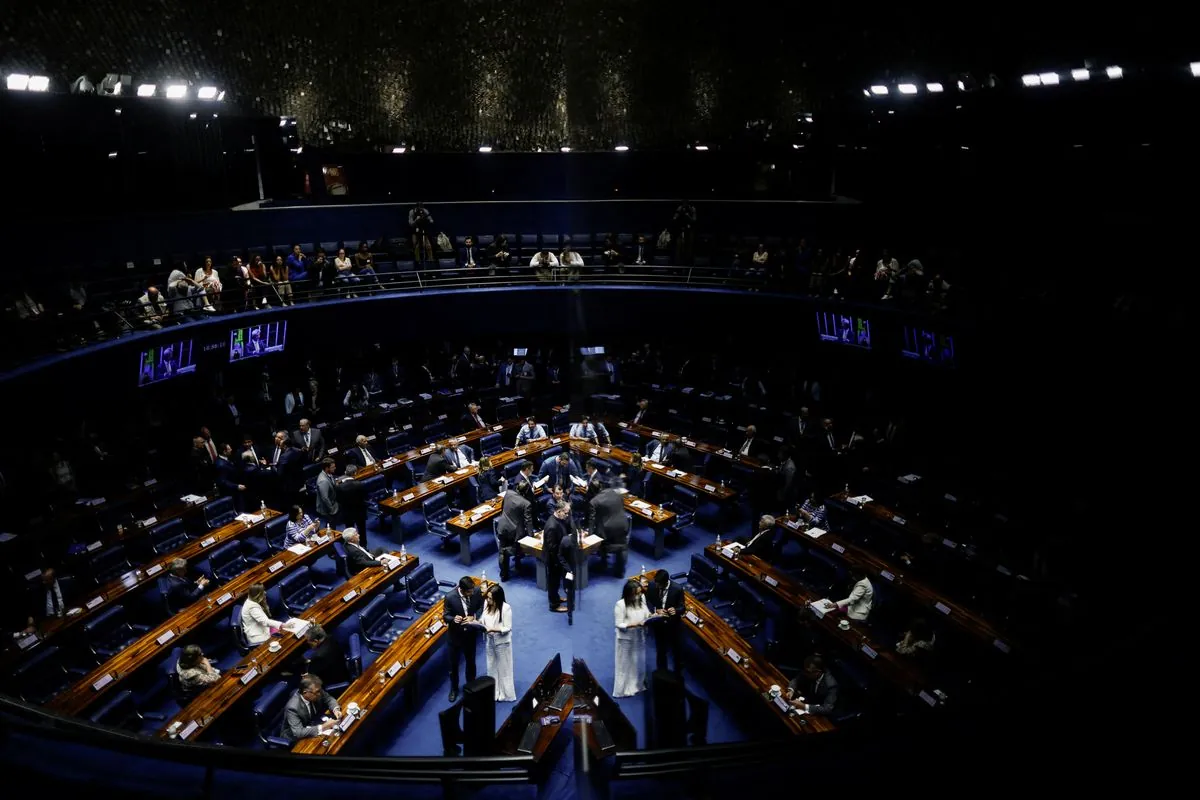Brazil Senate to Vote on New Central Bank Chief in October
Brazil's Senate will vote on Gabriel Galipolo's nomination as central bank chief on October 8. The decision comes after resistance from lawmakers, delaying the government's initial plans for an earlier confirmation.

Approximately one year ago, Brazil's Senate President Rodrigo Pacheco announced that the upper house would vote on the nomination of Gabriel Galipolo as the new central bank chief on October 8, 2023. This decision came amid discussions about the timing of the confirmation process for the country's top monetary authority position.
Gabriel Galipolo, who served as the director of monetary policy at the Central Bank of Brazil, was nominated by President Luiz Inacio Lula da Silva to lead the institution. The Central Bank of Brazil, established in 1964, plays a crucial role in conducting monetary policy and maintaining price stability in South America's largest economy.
Before the Senate vote, Galipolo's nomination was required to undergo scrutiny in a Senate committee hearing, which at the time had not been scheduled. The Brazilian government initially aimed to expedite the confirmation process, hoping to secure approval before the monetary policy committee meeting scheduled for September 17-18, 2023. However, this plan faced opposition from lawmakers who preferred to delay the vote until after the municipal elections in early October 2023.

The timing of the nomination and subsequent confirmation process highlighted the delicate balance between political considerations and economic policy-making in Brazil. The country's central bank gained formal autonomy in 2021, a move designed to shield monetary decisions from political interference and enhance credibility in financial markets.
Galipolo's nomination to replace Roberto Campos Neto, whose term was set to conclude in December 2023, came at a critical time for Brazil's economy. As the 9th largest economy globally by nominal GDP, Brazil has faced numerous economic challenges in recent years, including periods of recession, high unemployment, and inflation concerns.
The Central Bank of Brazil, headquartered in Brasília, is responsible for setting the Selic rate, the country's benchmark interest rate used to control inflation. This role is particularly significant given Brazil's history of economic volatility, including periods of hyperinflation in the 1980s and early 1990s.
The Brazilian real, introduced in 1994 as part of the Plano Real to stabilize the economy, remains a key focus of the central bank's policies. As a member of the BRICS group of major emerging economies, Brazil's monetary decisions have implications beyond its borders, influencing economic trends across South America and the global financial landscape.
The Senate's role in confirming the central bank governor underscores the importance of checks and balances in Brazil's economic governance. With 81 members representing the country's 26 states and the Federal District, the Senate plays a crucial role in shaping the nation's economic leadership.
As Brazil continues to navigate economic challenges and opportunities, the appointment of a new central bank chief represents a significant moment in the country's ongoing efforts to achieve sustainable growth and financial stability.


































